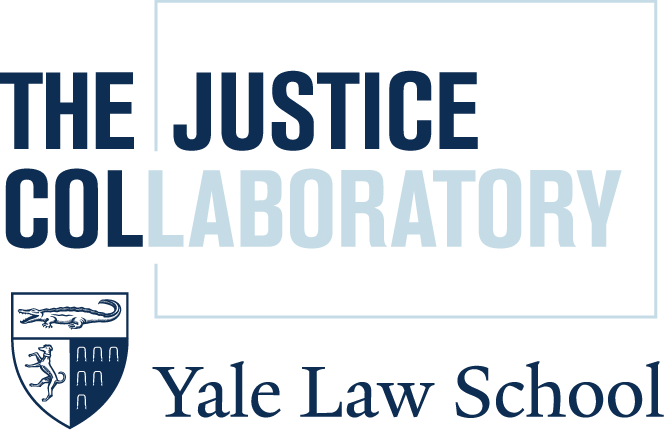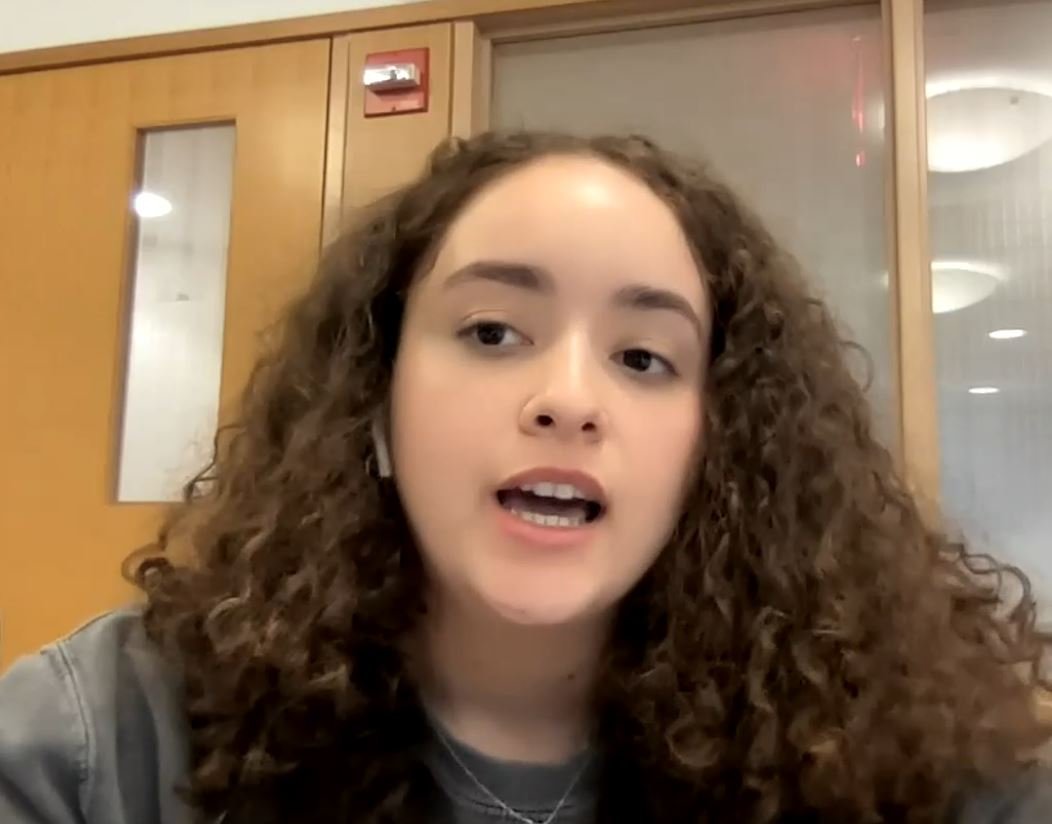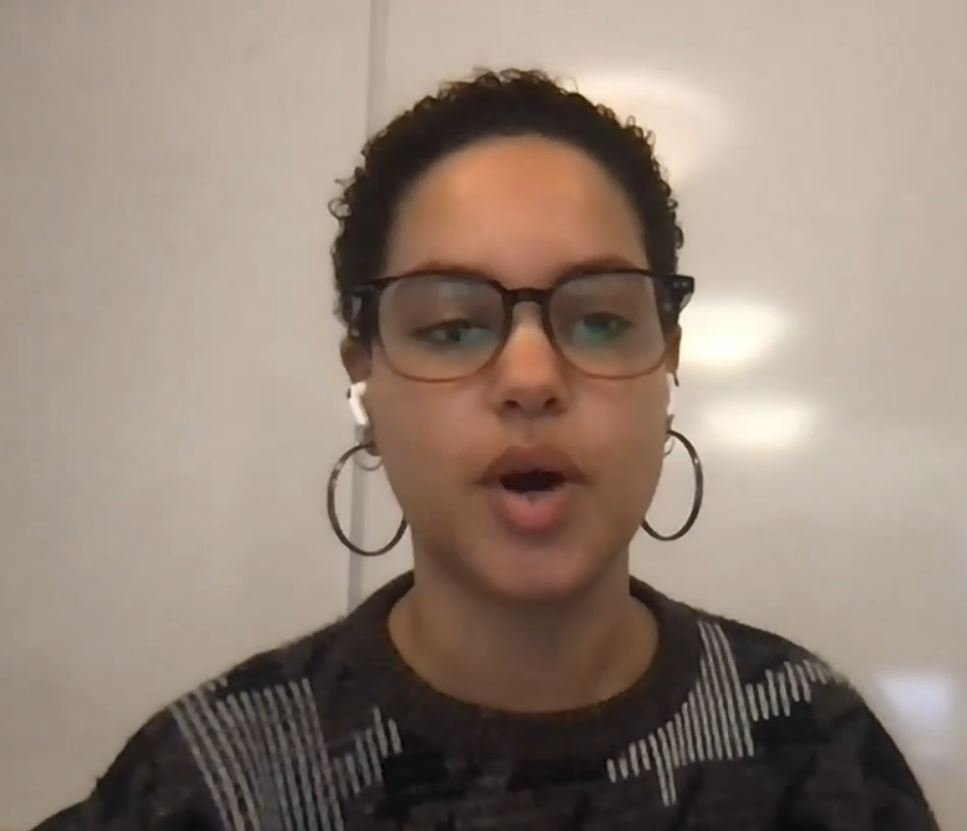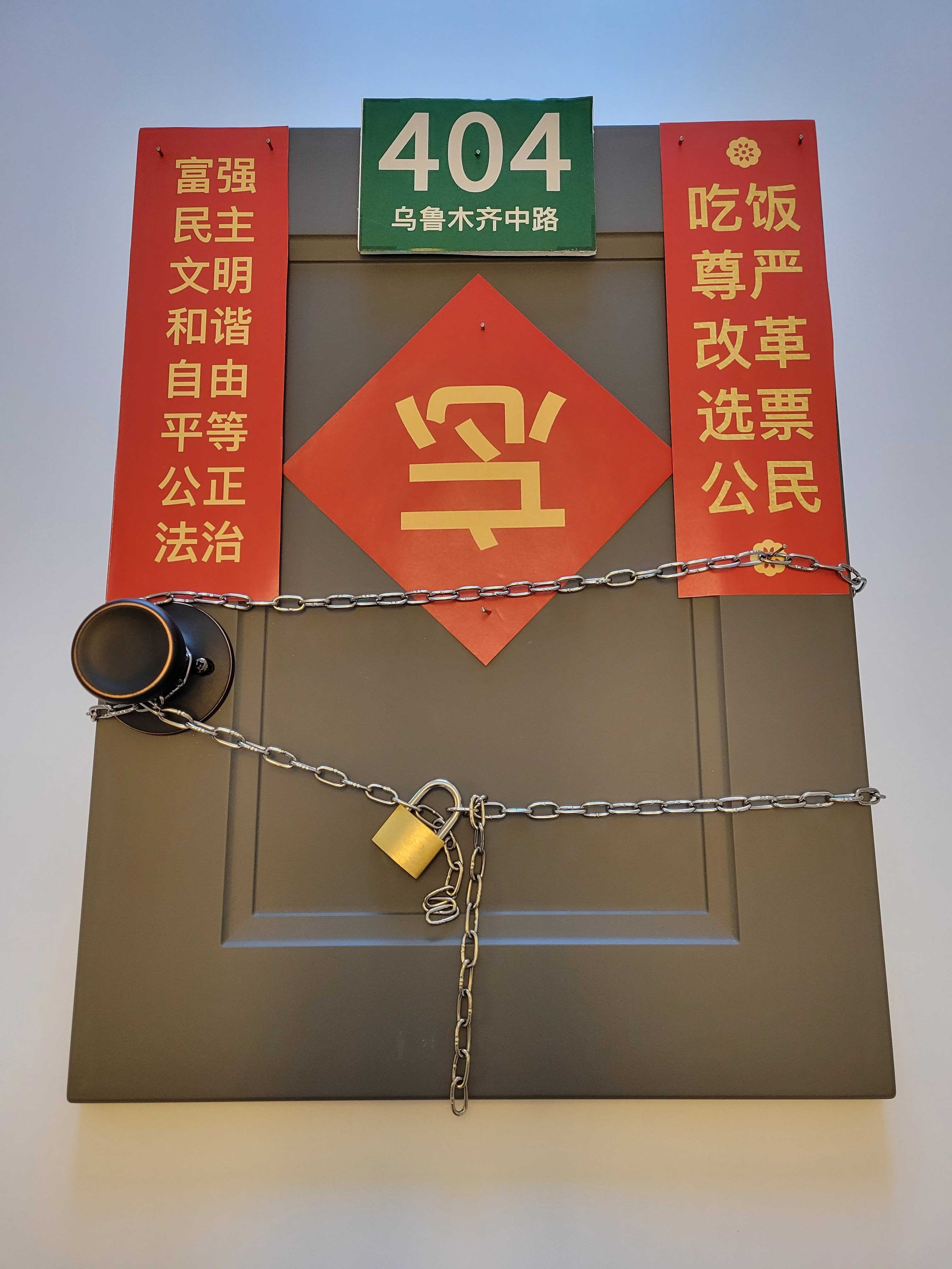Yale Students Present Projects from Inaugural Justice & Society Course
The Justice Collaboratory launched its inaugural course at Yale College last fall. Titled Justice & Society, the class aimed to engage in the meaningful study of community and the role of the criminal legal system in uplifting or impeding overall community vitality.
Professors Elizabeth Hinton and Dana Greene co-taught the course, which was hosted by The Department of African American Studies. The course was structured to draw from the rich pool of scholars and interdisciplinary expertise within the JC community while offering a pathway for the JC to connect with undergraduates at Yale.
A distinguished roster of guest lecturers engaged the students with curated readings and challenging discussions on justice, social change, structural violence, power, white supremacy, love, and healing. Representing six distinct disciplines and a multiplicity of perspectives on the law, sociology, and power the guests included: Caroline Nobo, Miriam Gohara, Ben Justice, Marisol Orihuela, Monica Bell, Kayla Vinson, Jorge Camacho, Vesla Weaver, Tracey Meares and Tom Tyler.
In an online symposium, select students shared extraordinary final projects—mixed-medium explorations regarding the vitality of a community of which they are a member, focusing on the impact of the criminal-legal system/s.
Alex O’Sullivan, a freshman from Washington DC, used poetry to process the impact of a beloved relative’s incarceration on his family. Drawing inspiration from hip-hop artist Kendrick Lamar, in particular his track Mother I Sober, Alex wrote a 26-page poem titled, “All for one: a family narrative”. He wrote in the voices of family members, a scheme that ultimately helped him to find his own voice and express the grief and harm this state-sponsored rupture enacted upon his most vital community, his family. Watch Alex’s presentation here.
Alanna Rivera, a sophomore from Perth Amboy, NJ used film to examine the impact of policing in her own community. She made a short documentary in which she interviewed a detective, a lieutenant, and the city’s mayor to understand how they enact power, build relationships and conduct surveillance in the community. This documented inquiry allowed Alanna to answer questions in the affirmative about the vitality of Perth Amboy. Watch Alanna’s presentation here.
Rebecca Mironko, a senior who grew up between South Africa and Cambridge, MA chronicled her family’s personal history and explored the social lessons parents who've survived trauma teach to their children. She shared the story of her father, who fled Rwanda in 1959 and returned to study the Gacaca and reclaim the family home. Rebecca focused on her father’s parenting and his approach to the legacy of violence to highlight the various ways he instilled the importance of community and empathy in his children. See Rebecca’s presentation here.
One student chose to present anonymously due to the politically incendiary nature of their presentation, Behind closed Doors. Anonymous created a work of protest art by constructing a locked door decorated with couplets, symbols, banners, and an address that highlights government repression, public protests, and the consequences of China’s strict Covid-zero practices. Each number, letter, and symbol on the door conveyed the real-life costs for the 314 million Chinese citizens confined to their homes, the reactions to government censorship, and the erosion of trust between the community and police. Access the presentation here.





